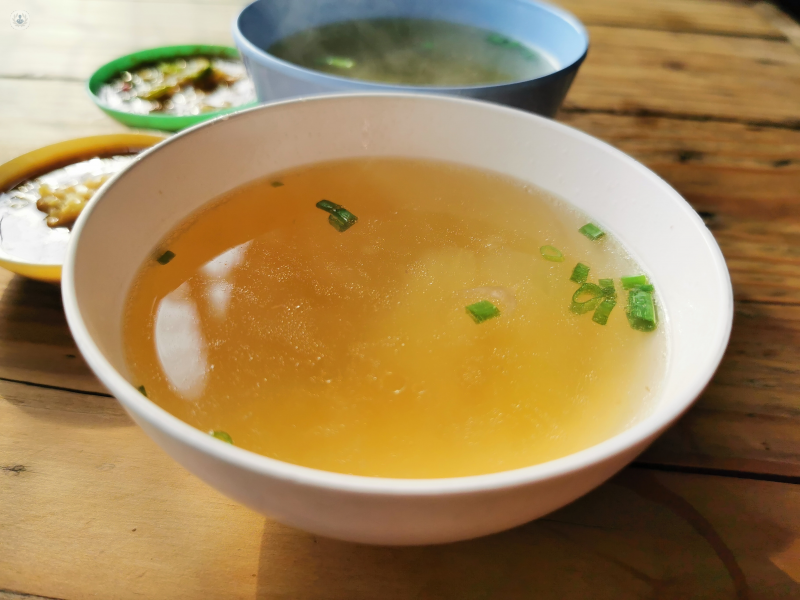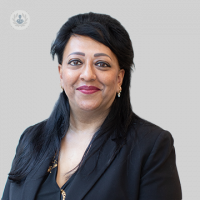Diverticulitis diet what to eat
Autore:Diverticulosis is a condition in which little sack-like protrusions in the large intestine form. If these get inflamed then this is then called diverticulitis.
If you have diverticulosis - which is present in approximately 50% of those over the age of 60 in the Western world - you may not notice any symptoms which means you may not even know you have it. However, you’ll know if you have diverticulitis because you’ll be experiencing abdominal pain, you may have a low-grade temperature, nausea, vomiting and general feeling of being unwell - which is when it's time to consult your doctor!
In this article, Dr Lisa Das, a leading consultant gastroenterologist practicing in London, explains which diet you should follow to both help treat and prevent diverticulitis flare-ups.

What causes diverticulitis?
Particularly in the Western world, we are seeing an increasing proportion of younger people with diverticulosis. We're not sure why, but we think that a diet low in fibre somehow alters the colonic motility creating increased pressure within parts of the bowel, such as the left side of the bowel known as the sigmoid colon. With this increased pressure, there are weak parts of the colon wall, especially where the blood vessels come in, and you can get little patches that protrude to the outside of the lumen of the bowel wall.
Interestingly, Asians seem to have an increased risk of right-sided colonic diverticulosis whereas, in the West, we see left-sided predominance. We're not sure why this is occurring.
In respect to diverticulitis and what causes the actual inflammation, we're not quite sure, but there are two theories: One is that of damage, perhaps due to hard stool or food residue at the neck of the diverticulum, and maybe a micro-perforation (small tears) that over time, collect bacteria.
The other thought is, and this is not mutually exclusive, that there's damage to the blood vessels at the neck of that sack, and some kind of reduction in the blood flow then leads to bacterial proliferation.
Which foods help with diverticulitis?
When you're experiencing acute inflammation, you're generally not feeling well and may not have an appetite. In acute diverticulitis, you should immediately go to a low residue diet - which includes clear liquids and broths - and that might be adequate treatment for a lot of people.
In the past, we used to hospitalise these people and they were given intravenous antibiotics, and indeed, some may still need that. However, there are a lot of people with acute, uncomplicated diverticulitis, that can manage their symptoms at home without antibiotics by sticking to a 72-hour liquid diet and taking paracetamol to ease the pain. Oftentimes, they will not need further antibiotics.
An important point to mention is that the symptoms of acute diverticulitis can mimic that of many other diseases, such as irritable bowel syndrome or bowel cancer, and most people who have had an episode of acute diverticulitis should have a colonoscopy eight weeks after their acute flare just to make sure there's nothing else underlying.
What is the best diet to prevent diverticulitis?
In people who get acute diverticulitis, they tend to have a slightly more unhealthy diet, so we do know that diet and lifestyle factors play a big role. For instance, if you are physically active, you eat much less red meat, you include more vegetables in your diet, and you maintain your weight to a healthy level, you're far less likely to develop diverticulitis. By adopting these healthy lifestyle measures, we can reduce our incidence of diverticulitis by 50%.
When you're experiencing acute inflammation, it again goes back to a low residue liquid diet for 72 hours with a gradual resumption of a normal diet over time, depending on the symptoms.
Some newer studies are looking at non-absorbable antibiotics called Rifaximin, which are much safer than conventional antibiotics. Probiotics have also been studied, although we don't have big trials on this just yet.
How is acute diverticulitis treated by a doctor?
Like we've mentioned, if it's uncomplicated, you may be feeling a bit under the weather and you can treat it with a 72-hour liquid diet and paracetamol. If however, there are complications; if your temperature is very high, or if you're older and you have other diseases which mean you are taking steroids, you're on chemotherapy, or you have diabetes, then you're likely to be admitted to the hospital. And again, they will put you on a liquid diet and perhaps give you some intravenous antibiotics so that we can get to the root of the infection much, much quicker.
If you would like to make an appointment with Dr Lisa Das, visit her Top Doctors profile and check her availability.


